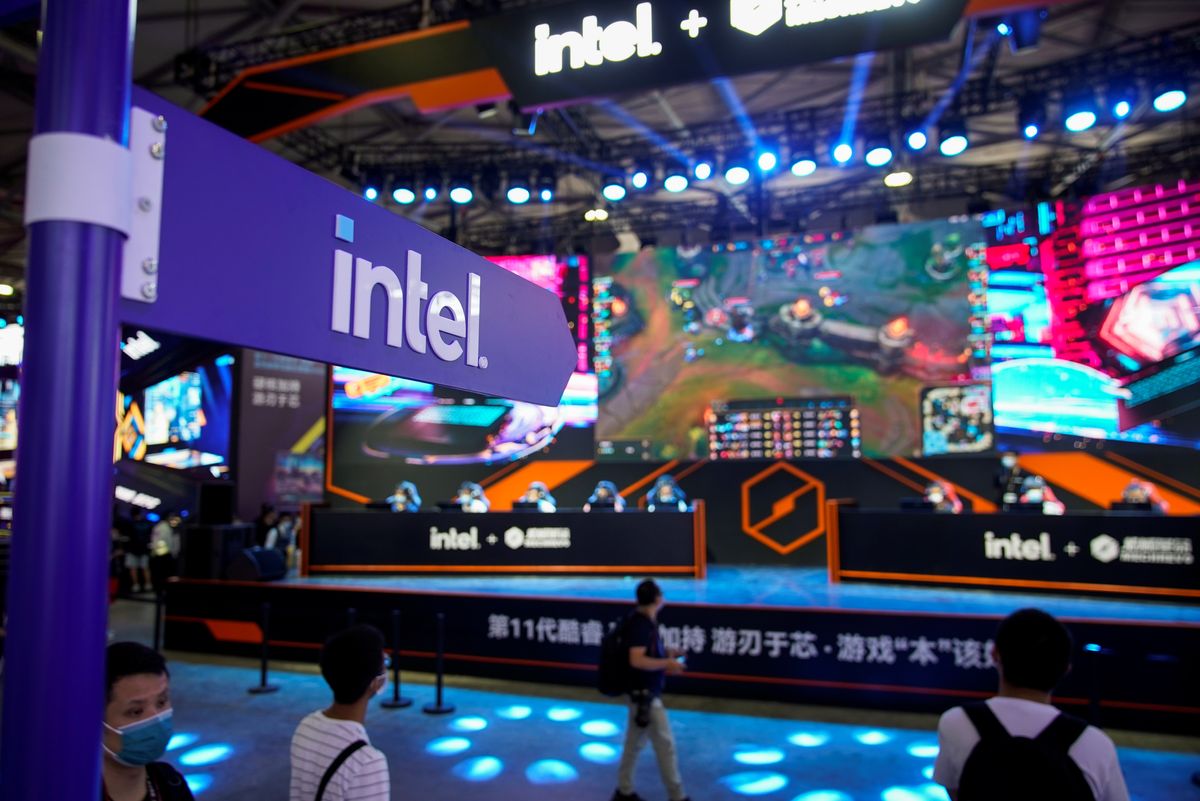Intel’s shares slip in a “historic collapse” after so-so results
Intel is one of the world's leading chipmakers and used to be at the top of the list.

A few minutes every morning is all you need.
Stay up to date on the world's Headlines and Human Stories. It's fun, it's factual, it's fluff-free.
The backstory: Intel is one of the world's leading chipmakers and used to be at the top of the list. But, over the last decade, it hasn't kept up the pace. Other companies like Samsung and AMD, who use contract chipmakers like TSMC to surpass Intel's own tech, took advantage of its sluggish progress and became the market's biggest and most advanced chip giants.
More recently: Intel's CEO, Pat Gelsinger, who took the role in 2021, has tried to regain that top spot with more contract manufacturing and new factories in the US and Europe. He also lobbied for the US Chips and Science Act, which will put more funding into US chip manufacturing (and Intel). But, the company's still facing intense competition.
The development: Last Friday, Intel saw a huge setback when it reported underwhelming earnings. The company's market value took a big hit, losing US$8 billion. Its fourth quarter last year saw a 32% decline in year-on-year revenue and a net loss of US$664 million, which caught both analysts and investors by surprise.
The first quarter of 2023 is expected to be no better, with a predicted net loss of 15 cents per share, as well as up to US$3 billion less revenue than expected, mostly because of slow growth in its data center business. Analysts aren't too optimistic, with many lowering their target prices for the company. Intel plans to cut US$3 billion in costs this year to improve the situation.
It generated US$7.7 billion from operations in the fourth quarter while also paying out US$1.5 billion in dividends. Some suggested cutting its dividend, as capital expenditures are expected to be US$20 billion in 2023.
Key comments:
"No words can portray or explain the historic collapse of Intel," said Hans Mosesmann, Rosenblatt Securities' one of the analysts who cut their price targets on Intel's stock.
"AMD's Genoa and Bergamo (data center) chips have a strong price-performance advantage compared to Intel's Sapphire Rapids processors, which should drive further AMD share gains," said Matt Wegner, an analyst at YipitData, speaking on rivals that are outpacing Intel's chip tech with their own advanced chips.
"It is now clear why Intel needs to cut so much cost as the company's original plans prove to be fantasy," said brokerage Bernstein, referring to the dip in the data center business. "The magnitude of the deterioration is stunning, and brings potential concern to the company's cash position over time."




Comments ()